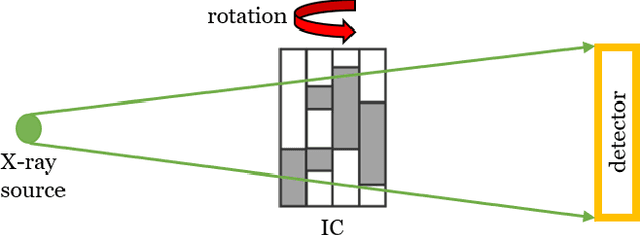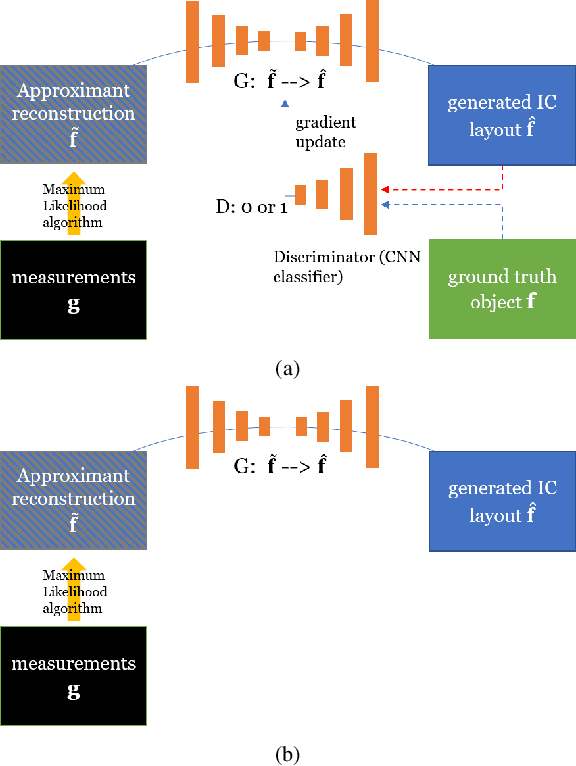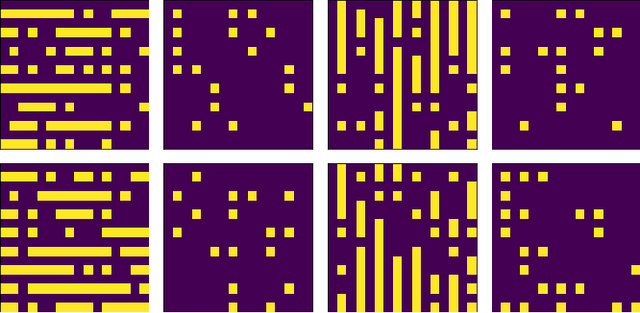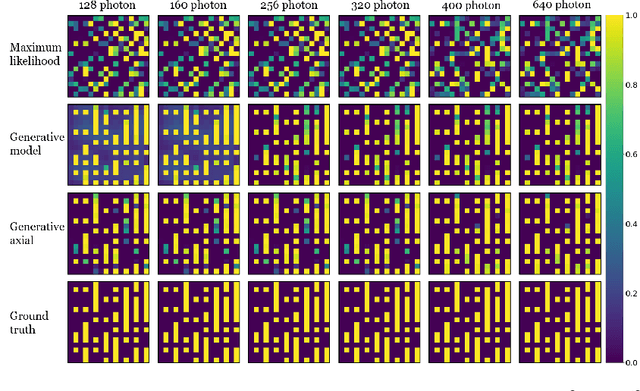Physics-assisted Generative Adversarial Network for X-Ray Tomography
Paper and Code
Apr 07, 2022



X-ray tomography is capable of imaging the interior of objects in three dimensions non-invasively, with applications in biomedical imaging, materials science, electronic inspection, and other fields. The reconstruction process can be an ill-conditioned inverse problem, requiring regularization to obtain satisfactory reconstructions. Recently, deep learning has been adopted for tomographic reconstruction. Unlike iterative algorithms which require a distribution that is known a priori, deep reconstruction networks can learn a prior distribution through sampling the training distributions. In this work, we develop a Physics-assisted Generative Adversarial Network (PGAN), a two-step algorithm for tomographic reconstruction. In contrast to previous efforts, our PGAN utilizes maximum-likelihood estimates derived from the measurements to regularize the reconstruction with both known physics and the learned prior. Synthetic objects with spatial correlations are integrated circuits (IC) from a proposed model CircuitFaker. Compared with maximum-likelihood estimation, PGAN can reduce the photon requirement with limited projection angles to achieve a given error rate. We further attribute the improvement to the learned prior by reconstructing objects created without spatial correlations. The advantages of using a prior from deep learning in X-ray tomography may further enable low-photon nanoscale imaging.
 Add to Chrome
Add to Chrome Add to Firefox
Add to Firefox Add to Edge
Add to Edge